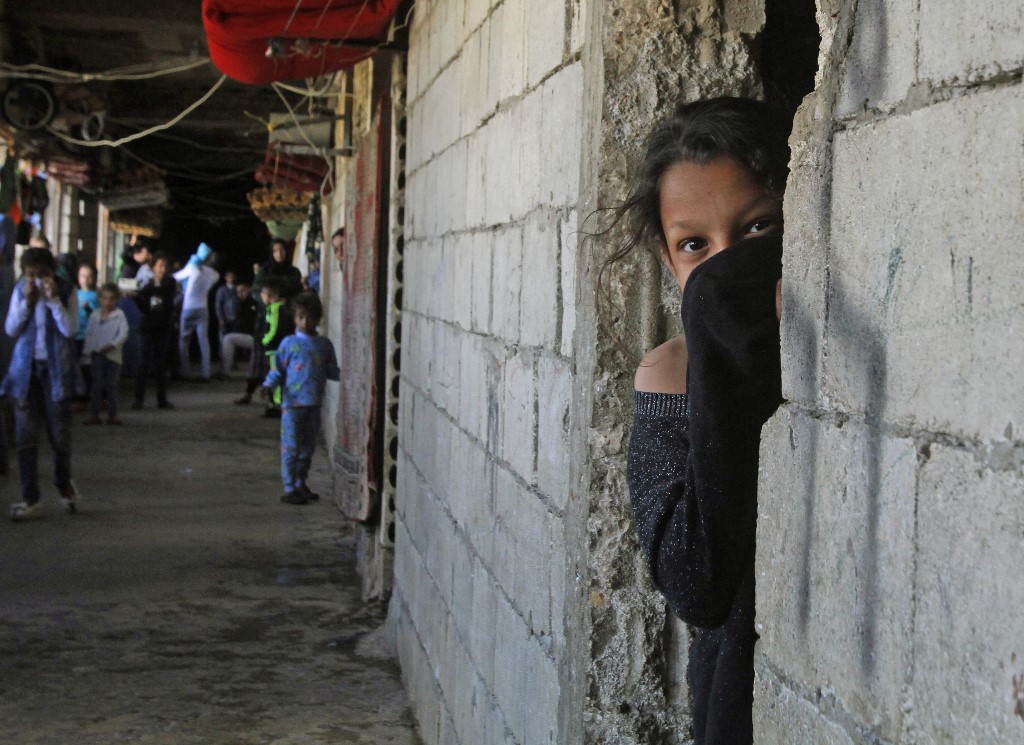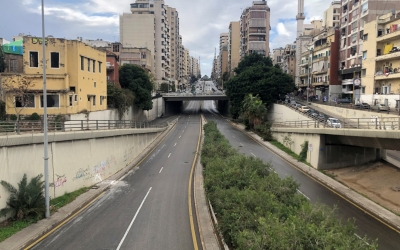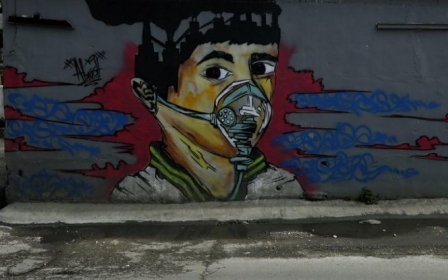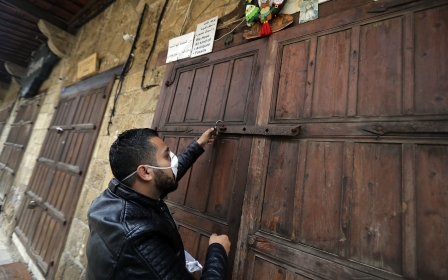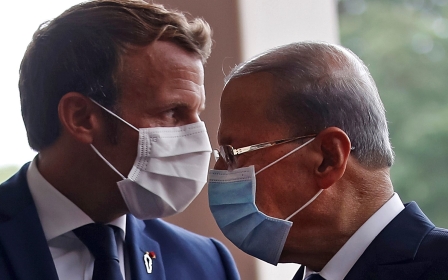Covid-19: Syrian refugee medics could save Lebanon's healthcare system
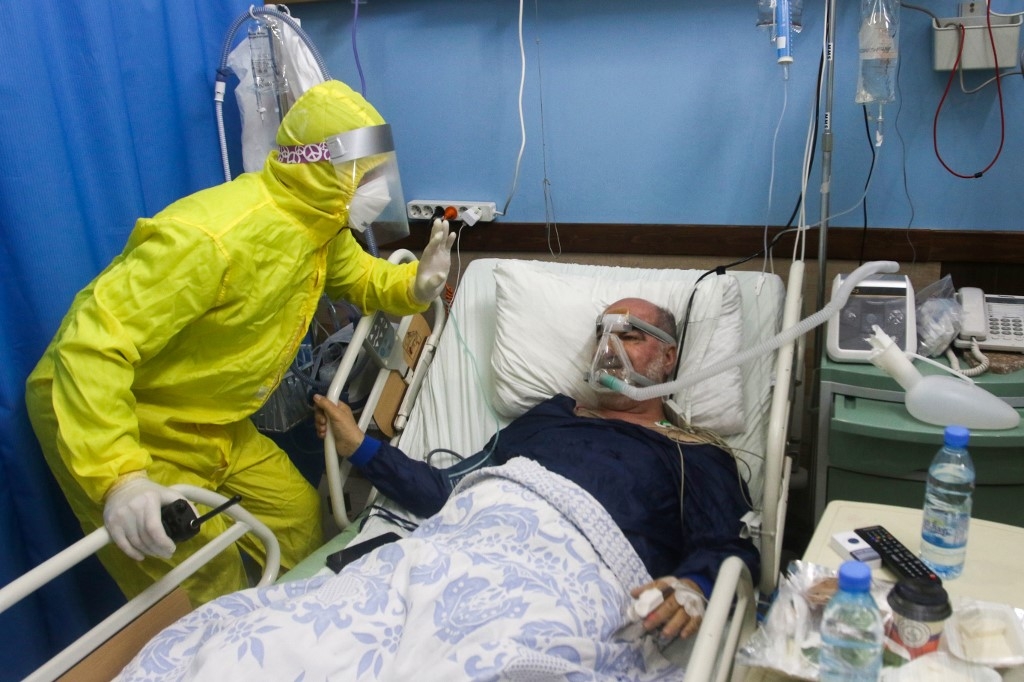
In a recent viral photo, Lebanese Health Minister Hamad Hasan, newly diagnosed with Covid-19, is seen signing a stack of papers from his hospital bed while receiving oxygen therapy. Many Lebanese people took to social media to express their outrage at what they consider to be propaganda, just days after photos showed Hasan flouting social-distancing mandates at a crowded luncheon.
Unlike the minister, many others with Covid-19 in Lebanon - a nation in the throes of an economic crisis characterised by a roughly 80 percent depreciation of its currency, and half of its citizens living in poverty - are unable to receive medical care.
After a series of poor, reckless, financially driven decisions to open up the cash-strapped country over the Christmas holidays, Lebanon is now experiencing a record surge in coronavirus cases and deaths.
Fragmented health system
This comes at a disastrous time, less than six months after one of the largest non-nuclear explosions in history destroyed Beirut, killing more than 200 people and displacing around 300,000. Many people here feel that the pandemic poses an unprecedented threat to the country’s health infrastructure, which has withstood decades of civil war and political unrest and was once regarded as among the best in the region.
New MEE newsletter: Jerusalem Dispatch
Sign up to get the latest insights and analysis on Israel-Palestine, alongside Turkey Unpacked and other MEE newsletters
Emblematic of the country’s bitter sectarianism, the government owes the heavily fragmented and commercialised Lebanese health system an estimated $1.6bn - a debt that has caused the value of nurses’ and doctors’ salaries to decline rapidly, triggering a “mass exodus”, Human Rights Watch noted in December. This has left healthcare facilities understaffed and unprepared to handle the Covid-19 crisis.
Every family I know, including my own, houses at least one person sick with Covid-19
Today, as wealthy nations conduct mass vaccination campaigns, Lebanon is struggling to confront the worst of its pandemic. Despite a still-insufficient testing capacity, Covid-19 positivity rates are hovering around a sobering 25 percent. Every family I know, including my own, houses at least one person sick with Covid-19.
Intensive care units have reached capacity. Public hospitals in the poorest, rural districts - such as where my family is from - have run out of oxygen. Billboards advertise oxygen cylinders for those unable to find, or afford, a hospital bed.
The government’s recent decision to lift subsidies on medical imports, which include 85 percent of the country’s pharmaceuticals supply, has left pharmacies barren. Healthcare facilities are unable to accommodate more patients, so each day brings news of some unfortunate soul dying of Covid-19 at home. Just today, I leaned of a 42-year-old man who left behind a wife and three-year-old daughter.
Slum-like living conditions
Despite its small size, Lebanon also hosts the world’s highest per capita refugee population, such that around one in five people is a refugee.
While there is minimal data on Covid-19 cases and deaths among displaced populations in Lebanon, many fear that refugees are at especially high risk of severe disease and death due to overcrowded, slum-like living conditions and severely limited access to health services.
Troublingly, there have been multiple calls on social media over the past week by prominent political figures to ensure that the Covid-19 vaccine - expected to arrive no sooner than mid-February - is administered exclusively to Lebanese citizens. Though the health minister recently released a public statement that Covid-19 vaccines will be made available to all residents, Human Rights Watch notes that the logistics of such equitable distribution remain ambiguous.
Withholding vaccination from refugees would not only constitute medical apartheid but also likely prevent Lebanon from achieving herd immunity, harming Lebanese society as a whole - and particularly the majority of impoverished citizens for whom face masks are prohibitively expensive.
As a frontline physician, I experienced firsthand the devastating effects of the Covid-19 pandemic on even the most highly-resourced hospitals in New York City. Now, almost a year later, I am a bystander, watching helplessly as the virus ravages a far less-equipped health system - one that is deeply divided and already struggling to stand on its own two feet, much like the country in which it exists.
The xenophobic rhetoric and policies adopted by the Lebanese state will serve only to harm the very same people the government claims it seeks to protect. The pandemic provides an opportunity not only to strengthen the healthcare workforce capacity in Lebanon amid an unprecedented crisis, but also to empower refugees, who are too often excluded from spaces reserved for citizens.
Dwindling workforce
Among the approximately 1.5 million Syrian refugees in Lebanon are many doctors, nurses and health professionals who are legally prohibited from practicing in their field due to a 2014 Lebanese labour law that restricts Syrians from working in sectors outside of agriculture, construction and cleaning services.
Some Syrian healthcare workers have found alternatives, such as working for international humanitarian agencies operating in Lebanon.
Mobilising Syrian refugee healthcare workers in Lebanon to respond to the Covid-19 crisis would be in the best interests of both the Lebanese and the Syrian peoples. The most obvious and immediate advantage would be to bolster a rapidly dwindling healthcare workforce and build capacity in the coming days and weeks.
Providing fair and appropriate compensation would help to mitigate the increasing risks of income and food insecurity, particularly among refugee-allied health workers. This would necessitate a long-overdue investment in the country’s healthcare infrastructure, which currently overemphasises secondary and tertiary care.
Incorporating Syrian refugee healthcare workers into the Covid-19 response could also help to restore goodwill between host and refugee communities and to alleviate escalating tensions, which have worsened in recent weeks after a refugee camp was torched by Lebanese arsonists.
Offering a path to permanent residency or citizenship, as has been done in other countries, could also incentivise and retain healthcare professionals, especially as many Syrian refugees in Lebanon are either unregistered or have outdated immigration paperwork.
Doing the right thing
The Lebanese government’s failure to effectively curb the pandemic is unsurprising. The absence of clear, unified and transparent public health messaging in a deeply sectarian context, characterised by decades of distrust in public institutions, has all but ensured the severity of the crisis.
Yet, those in leadership positions have an opportunity - and indeed an obligation - to do the right thing for all people who live in Lebanon by leveraging the sizeable population of Syrian refugee healthcare workers and vaccinating all people, irrespective of their passport.
The views expressed in this article belong to the author and do not necessarily reflect the editorial policy of Middle East Eye.
Middle East Eye delivers independent and unrivalled coverage and analysis of the Middle East, North Africa and beyond. To learn more about republishing this content and the associated fees, please fill out this form. More about MEE can be found here.



